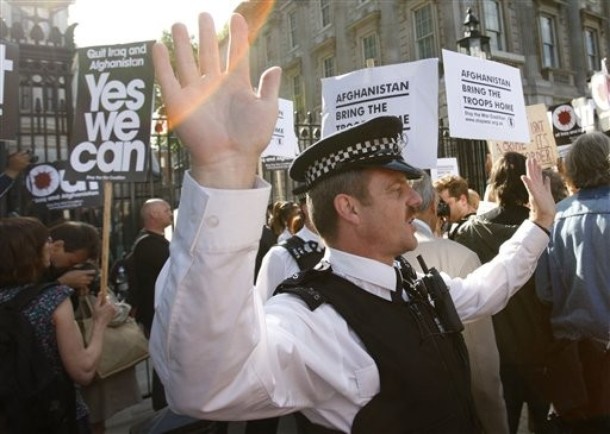« Reform Bites the Dutch Government | Blog Home Page | Nigeria's Critical Election Goes Down to the Wire »
The UK Parliament to Come: Unruly, Partisan, and Out of Touch

With pollsters, pundits and politicians united in describing May's election in Britain as the most unpredictable in a generation, the question of how many MPs each party will get is keeping the talking heads busy. But understanding just who those MPs will be, what they think, and how they relate to their parties and to the people, is also an important guide to the character of the next parliament.
This generation of parliamentary candidates has been selected during Britain's first coalition government since World War Two. The British prime minister is head of government by virtue of his or her leadership of the largest party in the House of Commons and normally enjoys extensive powers of patronage with which to maintain party discipline. The management challenge posed by coalition is that the prime minister has fewer ministerial appointments to play with, since a portion have to be handed over to the junior governing party. As a result, there are fewer incentives for MPs to fall in line with the dictates of party leaders. Indeed, the sitting parliament has been characterized by a rebelliousness unprecedented for the British parliament.
The example set by incumbent MPs may help explain why this year's cohort of parliamentary candidates has been unusually eager to speak out against party lines. Last week three Labour candidates rejected donations from former Labour Prime Minister Tony Blair, while 75 percent of them have publicly opposed Labour's position on Trident, Britain's nuclear deterrent.
Conservative candidates are posing a similar challenge for the prime minister. In his first conference speech as Conservative party leader, David Cameron warned that the party had lost in past elections because "while parents worried about childcare, getting the kids to school, balancing work and family life, we were banging on about Europe." It seems the Conservative ‘selectorate' disagrees. One retiring Conservative MP told the Financial Times that "in 1992 you had to support the death penalty to be selected, in 2015 you have to be euroskeptic".
A Drastic Decline in Membership
The collapse in membership of the three main parties helps explain why candidates are now more likely to be highly ideological than centrist. Membership in the Labour, Conservative and Liberal Democrat parties is at a historic low point. The remaining members are more likely to be true believers than casual affiliates, and they are picking candidates who reflect their own partisan positions in much the same way primary campaigns now pull candidates away from the center in the United States.
So we can expect the next parliament to present problems for party whips, not only because of tensions between the parties, but because of fractiousness within them. At a time of widespread public alienation from Westminster, it could be argued that a dose of independent thinking is exactly what is needed to put politics back in touch with people. But that's where another problematic question comes in: Are the next cohort actually any more representative of wider British society than the last one?
Out of kilter with Britain
On some measures the class of 2015 looks set to be a little more diverse than the one which proceeded it. Positive action measures to increase the number of women selected are bearing fruit, with the Centre for Women and Democracy think tank predicting the percentage of women MPs could jump from 23 percent of the House to closer to a third. Figures for Black and Minority Ethnic representation are likewise going in the right direction, with 70 new candidates and 30 incumbent MPs selected to contest the election already. The figures for class background, however, are less encouraging, with 31 percent of the candidates likely to win having been privately educated, compared to only 7 percent of the population as a whole.
These topline figures hide some interesting undercurrents. Few pundits would have predicted, for example, that the United Kingdom Independence Party, whose leader recently called for changes to Britain's anti-discrimination laws and restrictions on immigrant children going to state schools, would have more ethnic minority candidates than the Green Party. Nor has the recent furore about an MP's suggestion that the pregnant Shadow Work and Pensions Secretary be given a job "she can handle" fully exposed the extent of the parental gap at Westminster. Research released earlier in this parliament revealed that 45 percent of female MPs have no children - while the equivalent rate for men is 28 percent. So as the results come in, it will be worth cross-referencing not just the headline figures for ethnic and gender diversity, but also more granular information about the missing mums, and which parties have put ethnic minority candidates into winnable seats.
While the final result from May's election is still very much in contention, it is clear enough that our parliament will continue to be out of kilter with the country it represents. More "pale, male, and stale" than the country as a whole, but also more ideological on both right and left. No matter who wins the election, all parties have a fight on to convince Britain that politicians and those who elect them continue to inhabit the same world.
| Sponsored Links | Related Articles
|

